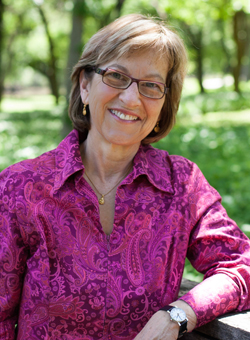
National Science Foundation has awarded Dr. Kate Browne, Principal Investigator and Dr. Caela O’Connell, Co-Principal Investigator, funding to host a workshop at Colorado State University in mid-October 2016. The workshop will convene 12 anthropologists and practitioners for 2.5 days to collaborate about the need to integrate cultural insights into the disaster recovery paradigm.
From the NSF proposal summary page:
Overview
When a natural hazard interacts with social configurations on the ground, the result may produce a disaster that upends an entire community. Yet impacts at the collective level are not typically understood as rips to the connective tissue that anthropologists recognize as “culture.” Nor is the importance of cultural vitality for successful rebuilding post-disaster considered a primary aspect of disaster response and reconstruction. In discussions about resilience, culture and community are often conflated without clear understandings about how they how they are distinct, how they overlap, or how they relate to group resilience. This workshop seeks to bring together researchers and practitioners experienced in disaster research and responses with the express goals of 1) Distinguishing “community” from “culture; 2) Crafting a flexible template of cultural considerations; 3) Building a pilot inventory network of local contacts in high-risk areas; 4) Assembling a protocol for testing the template and inventory network; and 5) Considering how we might scale up the process in order to build a knowledge network. These 5 goals are unified through the central workshop question: Are there certain kinds of cultural practices, values, or beliefs that, across key high-risk areas, become especially important to uphold in the face of profound upheaval?
To address our question and goals, we have designed a small workshop for maximum potency. Our plan is to convene 12 disaster scholars and practitioners who work in various disaster-prone areas of the world. These participants will be people who recognize the value of cultural strength in recovering from disaster. In addition to the participants, we want to ensure the highest level of productivity by building effective facilitation into the process. Participants will work to identify critical local values and practices in the geographic areas in which they work. By gathering this cross-cultural knowledge, we can prepare a pilot template that suggests how this knowledge might be introduced into disaster planning for more effective response and recovery.
Broader Impact
The broader impacts of this workshop are twofold: First, the goals of the workshop are primarily concerned with how to convert complex concepts of culture, community, and resilience into practical and actionable outcomes for researchers and practitioners. Second, through these processes, we will develop a pilot protocol for future research, and a knowledge network that connects practitioners and researchers. The knowledge network is intended to grow and interact in the years following the workshop in order to disseminate information from implementing the pilot protocol. These outcomes are explicitly focused on the ability of our protocol to advance understandings of how cultural elements within communities influence the rebuilding experience and outcomes and ultimately improve disaster response and rebuilding for the public. Thus, the workshop is intended to serve as an incubator, bringing together disparate, yet related knowledge and experiences, to directly improve how communities affected by disasters are rebuilt.
Intellectual Merit
In the face of upheaval following a disaster, we need to understand how to reduce suffering and long-term effects by identifying the parts of impacted group’s connective tissue within communities so that our models for response and intervention can correspond appropriately. In current literature on disaster studies, “cultural capital,” becomes a “community capital” (e.g. social, natural, built) involved in community resilience. However there is limited attention to how these capitals are fundamental in recovery approaches, experiences, and outcomes. Bourdieu’s concept of habitus suggests that groups that share a habitus are likely to share a similar set of socioeconomic resources, a heritage, a way of communicating and more. This workshop will address the conceptual gap by developing a template for how to think about what might be most relevant in particular disaster settings using the concept of habitus. This fusion will enrich the theory of habitus in a way that indicates how different dimensions of cultural dispositions are ordered rather than similarly central to the group. Likewise, it will challenge the disaster literature to engage with more dynamic theories of culture, community, and resilience in ways that could ultimately improve response outcomes for affected peoples.